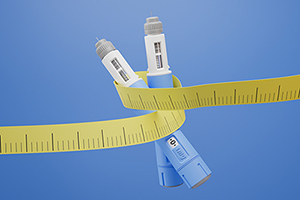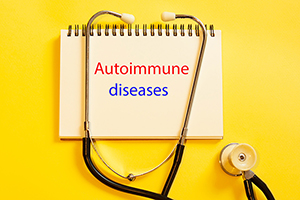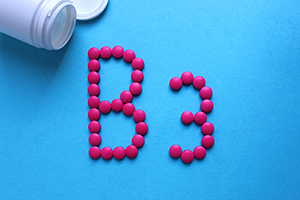| Podcast | |
|---|

|
Leyla Weighs In: Exercise to Protect Against Alzheimer’s
October 11, 2019
Fitter bodies make for healthier minds; Can exercise protect against Alzheimer's? Study ties physical activity to slower amyloid-beta related cognitive decline.
|
 |
|

|
ENCORE: Food Fight, Part 1
October 10, 2019
With the review of red meat research that was published last week, concluding that “low- or very-low certainty” evidence exists to link red meat consumption to any kind of disease, we wanted to reprise this interview with Nina Teicholz, author of “The Big Fat Surprise: Why Butter, Meat and Cheese Belong in a Healthy Diet.” She dishes on America’s food fight—the controversy over the optimal diet for the nation. The Dietary Guidelines for Americans (DGA) enshrine recommendations for at least 1/4 of the populace dependent on some form of government food. They also influence our food choices, guide the food industry, and serve as a role model for the entire world’s population. The DGA are out of step with the latest scientific findings, which largely exonerate saturated fat and meat as health risks. The result is that organizations like the American Heart Association still exhort Americans to avoid red meat, use only low-fat dairy, and substitute refined vegetable oils for butter and lard. This has been catastrophic for American’s health over the last several decades. Nina Teicholz is the author of a highly contentious article that appeared in the BMJ (formerly the British Medical Journal). The article critiqued the DGA, calling into question their scientific basis. Teicholz details the firestorm of controversy that her BMJ article generated. She fought back, even in the face of a demand for retraction. Ultimately, the BMJ stood by her article. Teicholz details how the food industry has enlisted the government to distort nutrition facts. Should we continue to look to the government as the arbiter of nutritional truth? Is saturated fat from vegetable sources like coconut and palm oil OK? Could telling Americans to eat more fat backfire? If you exercise does it really mean you can eat whatever you want? Click HERE for part 2.
|
 |
|

|
ENCORE: Food Fight, Part 2
Dr. Hoffman continues his conversation with Nina Teicholz, author of “The Big Fat Surprise: Why Butter, Meat and Cheese Belong in a Healthy Diet.” Click HERE for part 1.
|
 |
|

|
Q&A with Leyla, Part 1: Diagnosing The Joker
October 9, 2019
Diagnosing The Joker; Is my favorite smoothie safe for me to have with prediabetes? Click HERE for part 2. YOU'RE INVITED TO JOIN US LIVE FOR NEXT WEEK'S TAPING OF "Q&A WITH LEYLA." JUST GO TO OUR FACEBOOK PAGE AT 3:30PM ET ON TUESDAY, OCTOBER 15 FOR OUR FACEBOOK LIVE EVENT.
|
 |
|

|
Q&A with Leyla, Part 2: Heart Palpitations
I have a heterozygous PCSK9 mutation. Do you have any thoughts on the new PCSK9 inhibitors?; I get heart palpitations after I eat. My doctor told me to ignore it, but why does it happen after I eat?; My PSA went up to a 3.9 from 2.7 and I'm reluctant to have a biopsy. Are there any non-invasive tests that could give me a sense of how serious this is?; I have fungus infection in several toes and have tried everything for it. I've decided to take terbinafine but this can be hard on the liver. Are there any supplements to take to mitigate the dangers?; Do you agree with Beth Shirley from your recent podcast that arginine is not helpful for nitric oxide production? And what exactly is in Viagra that makes it so effective? Click HERE for part 1.
|
 |
|

|
ENCORE: Managing Your Memory, Part 1
October 8, 2019
"Seven Steps to Managing Your Memory: What’s Normal, What’s Not, and What to Do About It." "Why did I walk into this room?” “Where did I put my car keys?” “What’s my ATM password?” Memory problems are among the most common complaints seen in primary care. Harvard neurologist Dr. Andrew Budson is co-author of this practical guide to memory problems: Are we really experiencing an epidemic of dementia or are people just living longer? Do we have unrealistic expectations of our aging brains? When is memory loss normal and when is it a harbinger of dementia? Is Alzheimer’s the only type of memory loss? Can certain drugs produce memory loss? Are concerns over statin use warranted? Can proper diet defend against memory loss? What about exercise? Does research support the efficacy of “brain games”? What role for sleep optimization? Why is it so hard to come up with medicines for memory that have more than just slight, temporary benefits? When is it dementia and when is it depression? Should we all get tested for ApoE4, the “Alzheimer’s gene”? Why research shows that pulling an “all-nighter” is not the best way to study for a test; Simple habits that support memory. Click HERE for part 2.
|
 |
|

|
ENCORE: Managing Your Memory, Part 2
Dr. Hoffman continues his conversation with Harvard neurologist Dr. Andrew Budson, co-author of "Seven Steps to Managing Your Memory: What’s Normal, What’s Not, and What to Do About It." Click HERE for part 1.
|
 |
|

|
Leyla Weighs In: Body Shape v. BMI
October 4, 2019
What is the difference between nicotinamide riboside (NR) and nicotinamide mononucleotide (NMN)? How these NAD+ precursors measure up; Plus, body shape vs. BMI as risk predictor in women.
|
 |
|

|
ENCORE: Toxic Mold Exposure, Part 1
October 3, 2019
Toxic mold exposure in the wake of the recent hurricanes: Dr. Ritchie Shoemaker, author of "Surviving Mold," is an expert on illnesses acquired after exposure to the interiors of water-damaged buildings. He details how mold and bacteria can create a witches' brew of systemic medical problems distinct from their ability to trigger allergies. Chief among them is inflammation which leave sufferers with memory deficits, depression, muscular weakness and bodily aches and pains. These symptoms can easily be misdiagnosed as depression or PTSD in the wake of the loss and displacement that hurricane victims experience. Biotoxicity from mold and bacterial agents causes real, but poorly understood, physical changes. When combined with exposure to chemicals released in the environment, this can result in Multiple Chemical Sensitivity. Why are some more prone to biotoxicity than others? What should be done to remediate the problem in the immediate aftermath of flooding? How do you test for biotoxicity? Why are anti-fungal medications not the answer? What long-term therapies offer relief to sufferers? Click HERE for part 2.
|
 |
|

|
ENCORE: Toxic Mold Exposure, Part 2
Dr. Hoffman continues his conversation with Dr. Ritchie Shoemaker, author of "Surviving Mold," an expert on illnesses acquired after exposure to the interiors of water-damaged buildings. Click HERE for part 1.
|
 |
|
|





























